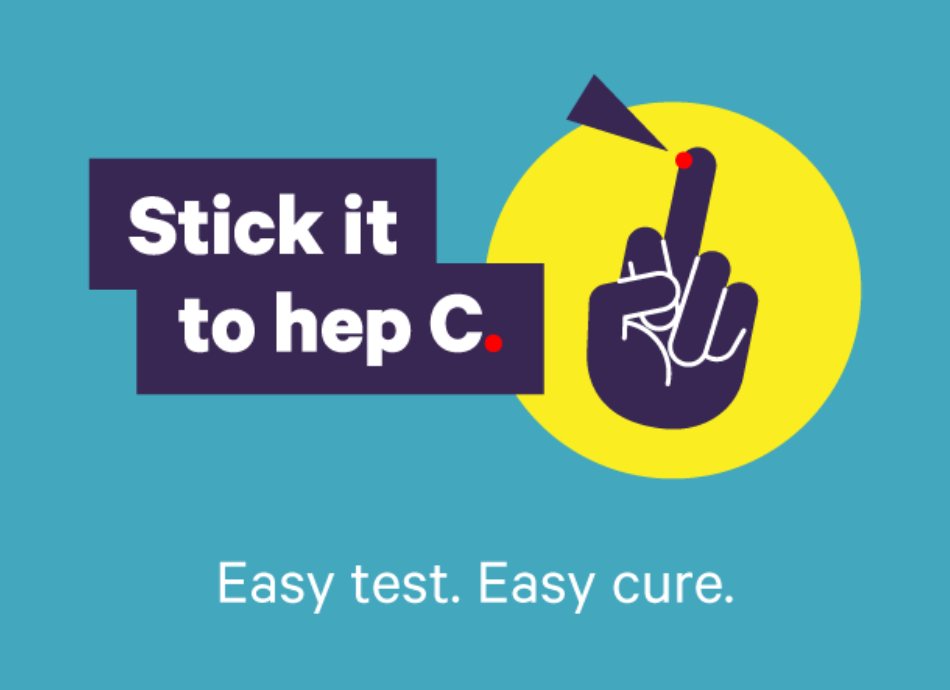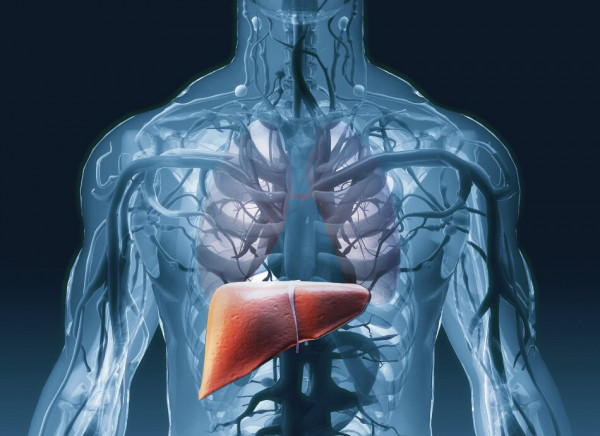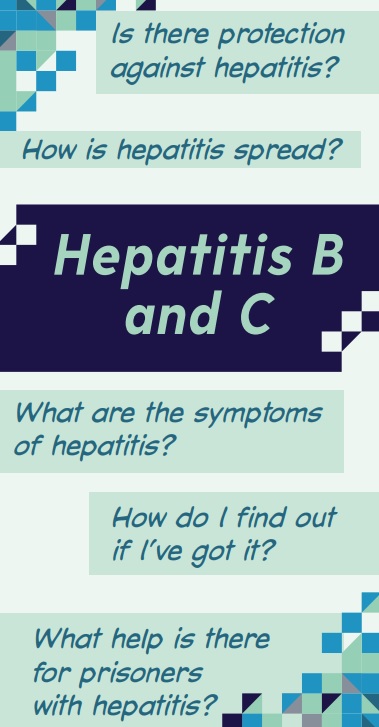If you're a frequent visitor to Healthify, why not share our site with a friend? Don't forget you can also browse Healthify without using your phone data.
Hepatitis C | Pokenga huaketo
Key points about hepatitis C
- Hepatitis C (pokenga huaketo) is a viral infection that causes inflammation of your liver.
- The virus is carried in your blood and is passed on when the blood of an infected person enters the blood stream of an uninfected person.
- This most commonly happens through needle sharing.
- Testing's available through regional testing sites.
- A medicine called Maviret will cure the condition for most people.
- There's no vaccine to prevent it so avoiding blood-to-blood contact is the best way of preventing infection.

Hepatitis is an inflammation of the liver. Your liver is one of the hardest working organs in your body. It removes harmful substances from your blood, stores vitamins, and makes proteins that help your blood to clot, among many other functions.
Acute hepatitis C refers to the first few months after someone is infected with the hepatitis C virus. Many people don't know they have hepatitis C as most don't feel sick when they're first infected. About 1 in 5 people who become infected clear the hepatitis C virus from their body without needing treatment. The rest go on to have chronic hepatitis C infection.
Chronic hepatitis C occurs if acute hepatitis infection is not cleared by your immune system. Over time, chronic hepatitis C can result in liver diseases, eg, fibrosis and cirrhosis (a kind of scarring of the liver), liver cancer and liver failure. This is made worse by alcohol or cannabis use, obesity, age and reduced immunity. Chronic hepatitis C can be treated and most people can be cured.
Video: What is hepatitis C and why should you care?
This video may take a few moments to load.
(John Hopkins Medicine, US, 2018)
People who are at risk of getting hepatitis C include those who:
- share needles or other equipment to inject drugs
- received a blood transfusion before 1992 in Aotearoa New Zealand or any time overseas
- have had tattoos or body piercing, especially in unlicensed facilities or with unsterile equipment
- have had a needle stick injury in the course of their work, such as health professionals who have been accidentally pierced with a used needle
- have lived in, or received healthcare, in South East Asia, the Indian subcontinent, the Middle East or Eastern Europe
- have been in prison and used unsterile needles or been involved in unsafe tattooing practice
- have lived in close contact with a person diagnosed with hepatitis C
- were born to a mother with hepatitis C (low risk of transmission).
Although passing the hepatitis C virus to others during sex is rare, it is possible. Having a sexually transmitted disease or HIV, sex with multiple partners or rough sex appears to increase a person’s risk for hepatitis C.
The image below shows the location and approximate size of your liver.

Image credit: Canva
Many people with hepatitis C don't have symptoms and don't know they're infected.
Symptoms can include:
- fever (temperature of 38°C or higher)
- feeling tired
- lack of appetite
- joint pain
- upset stomach
- vomiting (being sick)
- dark urine
- grey-coloured poo
- yellow skin and eyes.
If symptoms occur with acute infection, they can appear anytime from 2 weeks to 6 months after infection.
If symptoms occur with chronic infection, they can take many years to develop. When symptoms appear, they often are a sign of advanced liver disease.
The only way to know if you have ever had hepatitis C is to get a blood test, called a hepatitis C antibody test. This test looks for antibodies (chemicals made by your immune system to help fight infections) to the hepatitis C virus. If you get infected, antibodies are released into your bloodstream. Antibodies stay in your bloodstream, even if you get rid of the virus. Find out where to get tested(external link).
- A positive or reactive hepatitis C antibody test means you have been infected with the hepatitis C virus at some time.
- A positive antibody test doesn't always mean you still have hepatitis C.
- Another blood test called an RNA test or PCR is needed to determine if you are currently infected with hepatitis C. This test looks for evidence of viral particles in your bloodstream.
Hepatitis C virus strains (or genotypes)
There are different kinds of the hepatitis C virus. These are called genotypes. In Aotearoa New Zealand, it's estimated that of those infected with hepatitis C virus:
- 55% have genotype 1 (which is further divided into genotype 1a and 1b)
- 35% have genotype 3
- 8% have genotype 2
- 1% have genotype 4 or 6.
It used to be important to know the genotype so that healthcare providers could decide on the best treatment option. We now have a funded treatment called Maviret that treats all genotypes (pangenotypic treatment).
The main aim of treatment for hepatitis C is to cure the infection, if possible, to stop the virus from damaging your liver.
Maviret
A medicine called Maviret is used for the treatment of hepatitis C. It aims to clear the hepatitis C virus from your body. This treatment has a cure rate of more than 90% with 8 weeks of treatment regardless of the type or genotype. Before starting Maviret, you will need to have tests to see how much scarring is present in your liver.
- If there's no severe scarring (known as cirrhosis) in your liver, you will be prescribed a course of Maviret tablets (usually taken as 3 tablets once a day for 8 weeks).
- Some people may need to take Maviret for longer (12 weeks).
- Maviret tablets can be prescribed by your doctor or nurse prescriber but they're only available from some pharmacies. Read more about Maviret tablets (including how to get your supply).
However, there are some situations where using Maviret tablets isn't suitable and/or you should be cared for in a specialist clinic. For example, if:
- you have cirrhosis or severe liver disease
- you also have hepatitis B infection, another type of virus that infects the liver
- you're HIV positive
- previous treatment for hepatitis C has failed.
In these situations, the specialist will supervise your treatment. After treatment, you may stay under specialist follow-up because, for some people, there's a risk of developing liver cancer even many years after the virus has been cured.
- Reduce your alcohol intake. Ongoing moderate to high alcohol intake speeds up liver damage. Talk to your healthcare provider about counselling and support to reduce alcohol use.
- Avoid social drugs, supplements or herbal products as some may cause further liver damage.
- For tiredness and fatigue, consider lifestyle changes to reduce stress, eat well, and improve fitness.
Apps reviewed by Healthify
You may find it useful to look at some Self-management and healthy living apps, Alcohol use apps and Nutrition, exercise and weight management apps.
Although there is currently no vaccine to prevent hepatitis C, there are things you can do to avoid becoming infected or re-infected and prevent the spread of the hepatitis C virus.
Hepatitis C isn't spread through food or close personal contact such as handshaking, hugging and kissing. Hepatitis C is spread when the blood from an infected person enters the bloodstream of an uninfected person.
To avoid this happening:
- Don't share needles or other equipment to inject drugs or any other substances.
- Don't use personal items that may have come in contact with an infected person’s blood such as shavers or toothbrushes.
- Avoid touching blood or open wounds.
- Avoid sexual practices that might risk blood contact including trauma, during menstruation, or when you or your partner have sores around the penis or vagina.
Hepatitis Foundation of NZ(external link)(external link)
Freephone 0800 33 20 10. Provides national long-term follow-up programmes for people with chronic hepatitis B and C. Includes news, events, useful links and resources for people living with hepatitis, health care professionals, and community groups and organisations supporting those infected with the virus.
Hepatitis C(external link) Health New Zealand | Te Whatu Ora
Hepatitis C(external link) The Hepatitis Foundation of NZ
Hepatitis C(external link) Healthy Sex, NZ
Apps
Self-management and healthy living apps
Alcohol use apps
Nutrition, exercise and weight management apps
Brochures
Hepatitis B and C(external link) HealthEd, NZ, 2019
References
- Hepatitis C management in primary care has changed(external link) BPAC, NZ, 2019
- Hepatitis C treatments(external link) Pharmac, NZ, 2019
- Hepatitis C(external link) Health New Zealand | Te Whatu Ora
- Hepatitis C(external link) The Hepatitis Foundation of New Zealand
Clinical resources
- Hepatitis C management in primary care has changed(external link) BPAC, NZ, 2019
- Hepatitis C treatments(external link) Pharmac, NZ, 2019
- Hepatitis C for health professionals(external link) The Hepatitis Foundation of New Zealand
- Hepatitis C(external link) Health New Zealand | Te Whatu Ora, 2023
Hepatitis Action Plan
A national Hepatitis Action Plan has been developed with priority settings of needle exchanges, prisons, primary and community care services, and alcohol and other drug services. The activities outlined in this action plan are grouped into five focus areas that will contribute to the overarching goal to eliminate viral hepatitis as a public health threat by 2030:
- awareness and understanding
- prevention and harm reduction
- testing and screening
- surveillance and monitoring
- integration and access to care.
Read more by viewing the Hepatitis Action Plan section,(external link) Ministry of Health and download the National Hepatitis C Action Plan Aotearoa NZ(external link)
Continuing professional development
Maviret for the treatment of chronic hepatitis C infection(external link) (The Goodfellow Unit, NZ, 2019)
What's new in HCV by Dr Ashok Raj (external link)(The Goodfellow Unit, NZ, 2018)
Apps
Self-management and healthy living apps
Alcohol use apps
Nutrition, exercise and weight management apps
Brochures

HealthEd, NZ, 219
Credits: Healthify editorial team. Healthify is brought to you by Health Navigator Charitable Trust.
Reviewed by: Dr Art Nahill, Consultant General Physician and Clinical Educator
Last reviewed:





